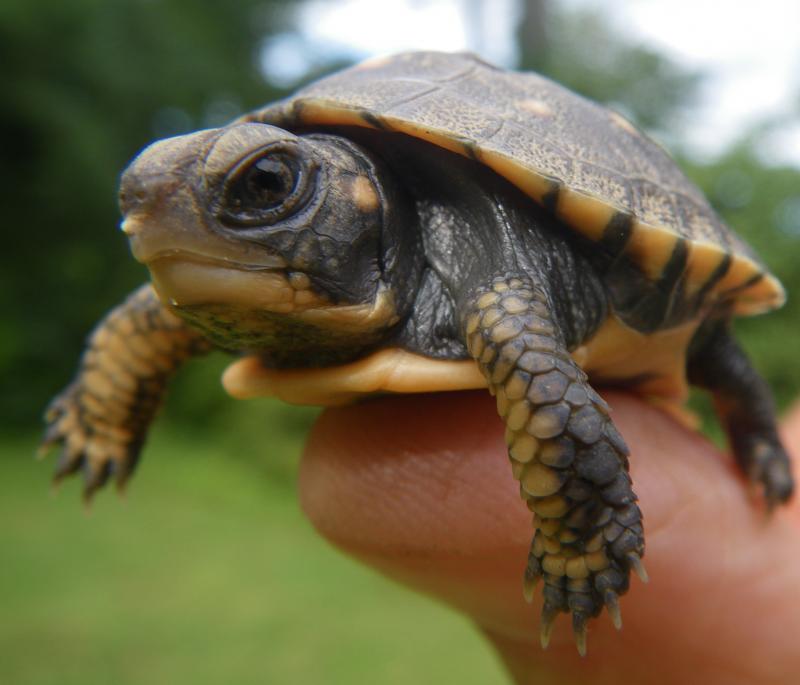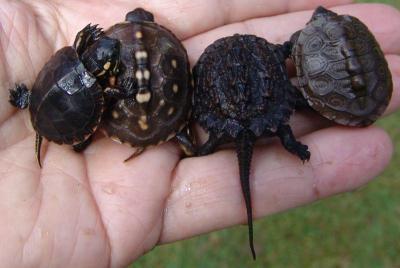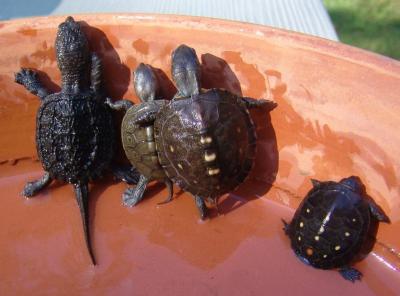Marion's 'Turtle Guy' to the rescue
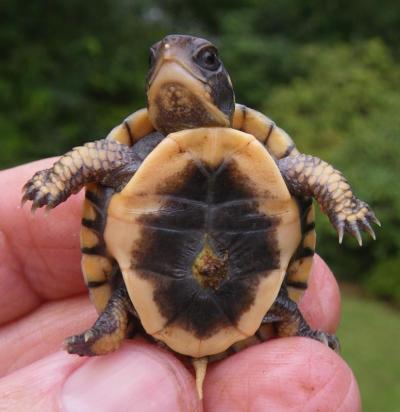
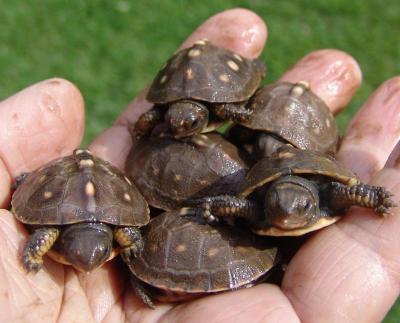
Don Lewis says turtles, those ancient, deliberate reptiles, can inspire people to a fervor often reserved for religious gatherings.
“We do a lot of turtle presentations all over the place, and sometimes they remind me of Southern revivals, those old tent-style revivals,” Lewis said. “People will line up after the show to give me their turtle testimonials.”
A Marion resident, Lewis said turtles are now hatching all across the South Coast, including one spot in his own backyard.
Last week, six eastern box turtles emerged from a patch of protected sand after Lewis and his wife, Sue Wieber Nourse, rescued them from a vulnerable spot in Dartmouth. A homeowner spotted a nest in the middle of the driveway and called Lewis, who has studied the animals for 15 years.
They brought the eggs to Marion where they spent 79 days incubating in a sandy “turtle garden.”
“Some people grow tomatoes. Some people grow flowers. Me and my lovely wife, since we’re conservationists and researchers, whenever we find a nest of protected or endangered species, we harvest the eggs and hatch them in our turtle garden,” Lewis said.
Known as the “Turtle Guy,” Lewis is the executive director of the Massachusetts Association of Conservation Districts and a turtle expert. Alongside his wife, who is a research scientist and CEO of Cape Cod Consultants, have studied a variety of turtles. As recently as Monday, 13 diamondback terrapin turtles, a protected species, hatched in the couple’s backyard. Lewis said that batch had been rescued from a stretch of beach on Sippican Harbor in Marion.
After turtles hatch, Lewis said they are released from his backyard to their habitat. For the terrapins, that means Sippican Harbor. The eastern box turtles are sent to a nature preserve in Wareham.
Terrapins were rare in the South Coast, but are making a comeback. “We’ve been working for about a decade and now we’re seeing the populations stabilize and improve,” Lewis said.
This season, painted, eastern box, snapper, and diamondback terrapin turtles have all hatched in the couple’s backyard. All were rescued from areas where the turtles might not have had a fighting chance. In an effort to protect the nests, the couple places a predator excluder (a cylinder made from chicken wire) around each nest.
As a “bellweather species,” turtles allow scientists to gauge an ecosystem’s health, said Lewis. Plus: turtles grab the public’s interest. “They are a great ambassador for wildlife. Unless you’ve been bitten by a snapper, you’ve had a good experience with a turtle,” he said.
For more information on Lewis and Nourse, visit www.turtlejournal.com.



